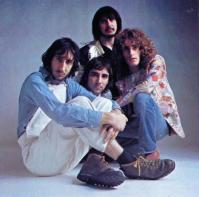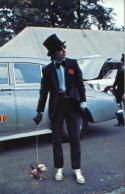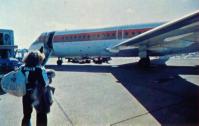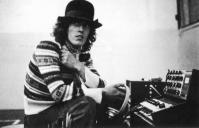





|

|

|

|
American jazz pianist (and sometimes vocalist) Mose Allison exerted a strong influence on the R&B side of mid-'60s Brit-Rock. For example, Georgie Fame's droll, nasal vocal inflections were lifted almost intact from Allison's somewhat laid-back approach. Whilst other groups - including Georgie Fame's Blue Flames - acknowledged their debt by covering "Parchman Farm," The Who chose this lesser-known composition. Townshend himself went even further, scribing the sleeve note for an Allison album.
Whereas, with world-weary cynicism, Mose Allison often turned his distinctive talent to poverty-stricken rural turn-of-the-century Arnericana, "Young Man Blues" avoided being termed picturesque, in that it was a timeless vignette concerned with both oppression and the lack of opportunity in the land of opportunities.
It, in its original form, Allison had subjugated much of the song's inherent anger, when re- interpreted by a clench-fisted Roger Daltrey and driven by Moon at his most manic, "Young Man Blues" became the defiant scream for survival of the unwilling underdog and a song possessed with as much rebellious vitriolic power as "My Generation."
Though, in terms of material, The Who have been self-sufficient, on those rare occasions when they've recorded the works of other writers, their interpretive prowess has enabled them to personalize what wasn't originally theirs, to the point where comparisons are often futile.
"Young Man Blues" is such an instance.
